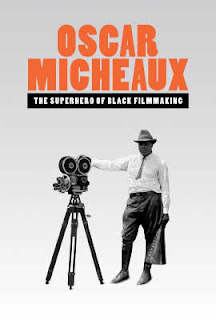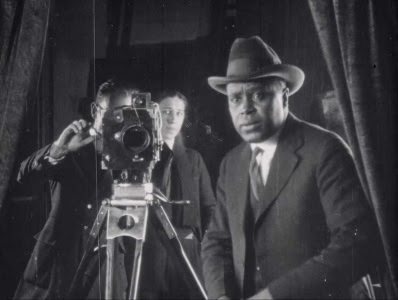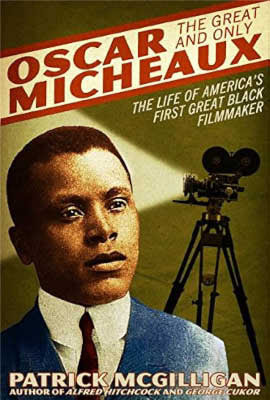Oscar Micheaux: The
Hero of Black Filmmaking

Director: Francesco Zippel
Year: 2021
Rating: 7.0
This is a
fine documentary about the man Oscar Micheaux considered to be the greatest
black filmmaker during the 1920s and 30s in what are termed Race Films. It
has the usual assortment of talking heads, clips from his films and even some
animation to tell his story. It builds a good case of his importance to black
filmmakers. I wish the documentary had made space for more context
about other people in the Race Film industry. There were other important individuals,
but perhaps that would have been a different story. Micheaux was a storyteller
of the black experience in both film - about 40 of them - and novels - eight
of them. About half of his films have survived. The first was produced in
1919 and the last was in 1948. His life is a remarkable story. He was a strong
believer in setting goals and working hard to achieve them no matter how
unlikely it seemed.

He was 17 when he pulled up stakes and
moved to Chicago where he became a Pullman Porter and traveled the land.
He thought a good opportunity was to own land in South Dakota and become
a rancher living in a home coincidentally called Rosebud. Likely the only
black man for hundreds of miles. In the brutal winters he began to write
a book - The Conquest: The Story of a Negro Pioneer and self-published it
and self-sold it traveling around the country. His approach to filmmaking
was similar. Do it yourself. A black owned film company asked him if they
could film his book. He wanted to be involved and they said no. So, he made
the film himself with zero experience. And then carrying the cans of films,
he again traveled from theater to theater in black communities to market
his film.

There was a hunger in these communities
for serious films about their lives and concerns. He had lynching's, discrimination,
crime, rape, inter-racial relationships. He did not always paint a positive
image of blacks - but told it as he saw it. After he died, he was forgotten
for decades - blacks were now in big studio films, there were the Blaxploitation
films, filmmakers like Spike Lee were telling their stories. But somewhere
along the line he was re-discovered, many of his films unearthed, restored
and he was given the credit he deserves. Like so many documentaries that are
produced by admirers, it lacks any negativity about the man. 1884 - 1951.
80 minutes directed by Francesco Zippel.



